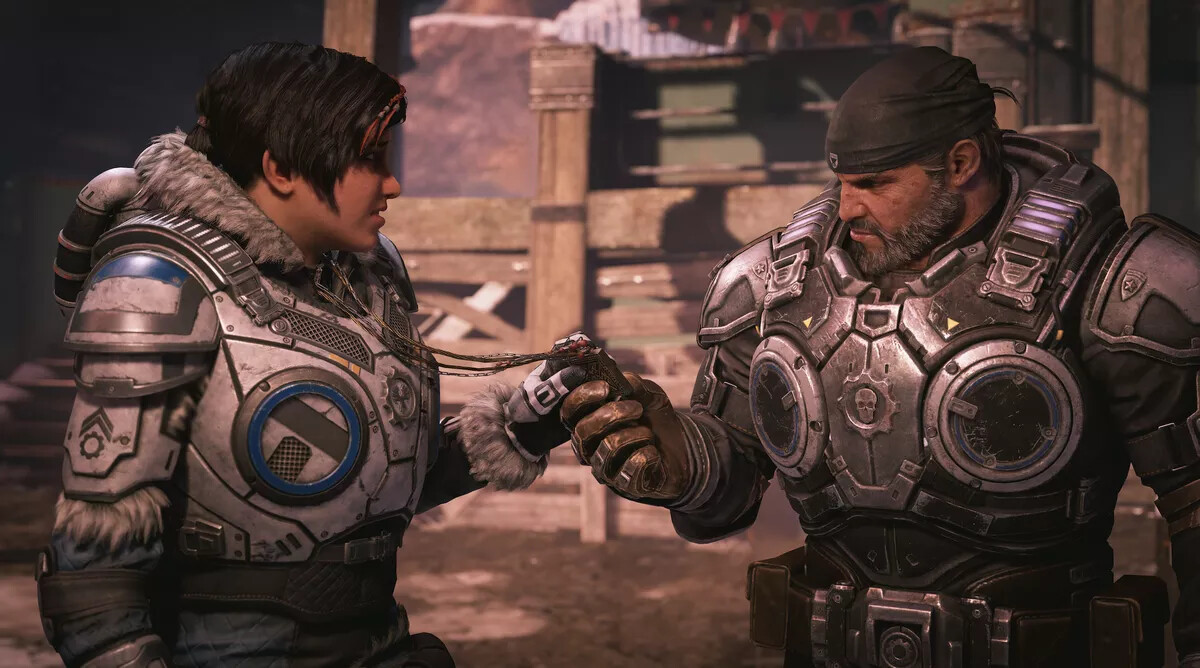The Gears of War franchise, once a cornerstone of the Xbox brand and a heavy hitter in the gaming world, has been a topic of much discussion lately. Following the performance of Gears 5 and its Hivebusters expansion, where surprisingly basic achievements were flagged as “rare,” questions are being raised about the series’ current trajectory and its ability to recapture its former glory.
 Gears of War characters in a tense firefight, highlighting the familiar characters and gameplay mechanics that are both loved and seen as needing evolution by some fans.
Gears of War characters in a tense firefight, highlighting the familiar characters and gameplay mechanics that are both loved and seen as needing evolution by some fans.
During the Xbox 360 era, Gears of War was arguably Microsoft’s second biggest franchise. However, after Gears of War 3 and Judgement, a noticeable dip in hype and popularity began. While franchise lifecycles naturally ebb and flow, and maintaining peak popularity is a challenge, we’ve witnessed series like God of War successfully reinvent themselves and surge back to prominence after facing similar stagnation.
This begs the question: should The Coalition, the current developers, be actively striving to return Gears of War to that top-tier status? Or should they continue on their current path? The Game Pass ecosystem complicates the traditional sales-centric view of success, and while Gears 5 seemed to have a strong initial launch, player retention appears to have been an area of concern.
From a personal perspective, the newer mainline games haven’t resonated as strongly with all fans, particularly regarding the core cast of characters. Kait, JD, and Del haven’t achieved the same iconic status as earlier characters for many. While unlikely, a return to playing as Marcus Fenix, the grizzled veteran, might reignite passion for some. Visually, the Gears games are undeniably stunning and more vibrant than their earlier counterparts. Therefore, it’s less likely that the art style, though some might find the character designs “chunky,” is the primary factor in any perceived decline.
The more significant issue seems to be gameplay. A common sentiment is that the gameplay feels dated, reminiscent of its 2006 origins. The challenge for The Coalition lies in evolving the core gameplay mechanics while retaining the essence of what makes Gears, Gears. God of War managed a radical transformation while still featuring Kratos in third-person melee combat. Can The Coalition achieve a similar reinvention for Gears without abandoning its core identity? Is it time to fundamentally rethink the gameplay loop and inject significant freshness into the formula?
Exploring bolder directions could be the key. Should Gears embrace a true open-world structure? Should it shift tonally towards survival horror, emphasizing vulnerability and dread over the power fantasy of a super soldier? Imagine a blend of Mass Effect’s squad dynamics and mission structure with Gears’ visceral combat. The ability to assemble a personalized squad, choose mission locations, and engage in more in-depth side quests could offer a compelling evolution.
What, then, can The Coalition realistically implement to elevate Gears of War back to the upper echelons of not just Microsoft’s franchises, but the broader gaming landscape? For long-time fans who cherish the series’ legacy, the hope is that Gears can once again become a source of excitement and innovation.
